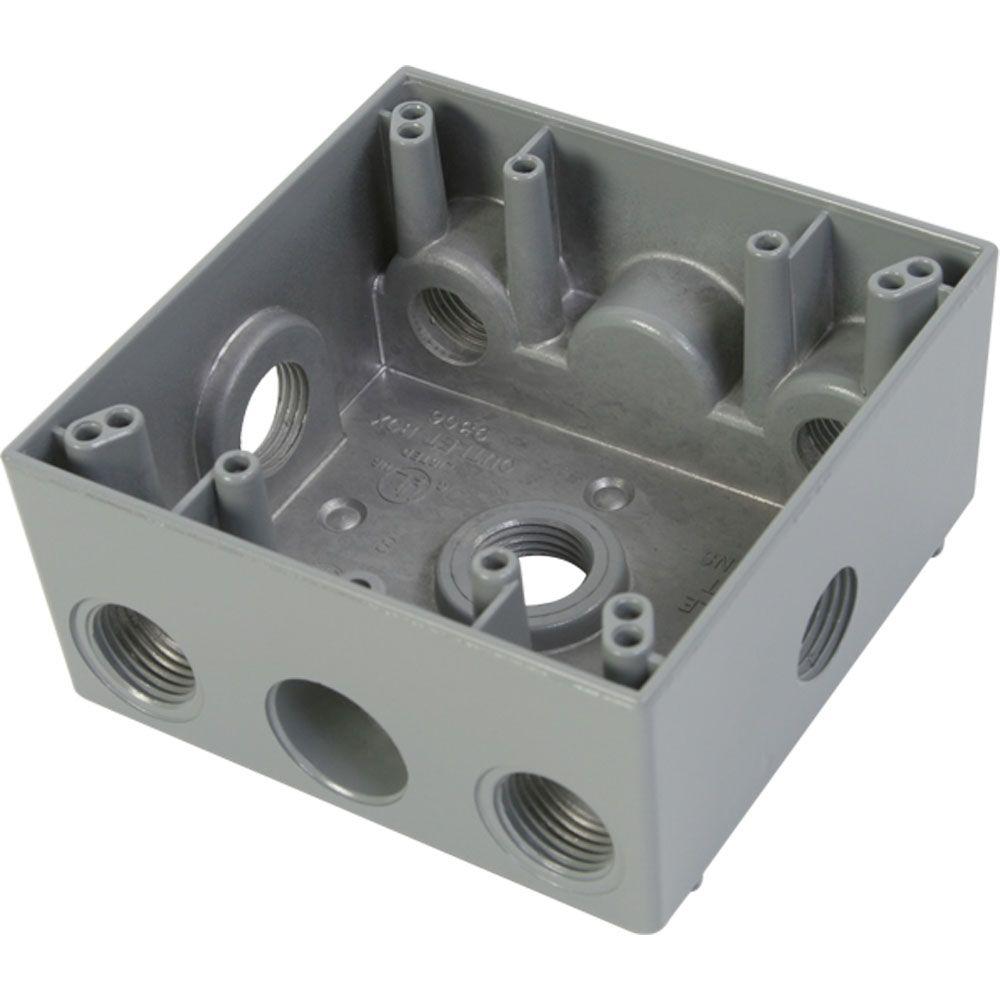Corrosion happens, but slowly.
I've done miles and miles of high-voltage outdoor lighting in Beverly Hills, where they don't, or at least didn't at the time, allow plastic conduit or boxes. And they don't give a crap about water rationing and they fertilize constantly.
I've seen Bell boxes…
…completely rotted away in a few years. I've seen galvanized underground pipe completely rotted away in a few years.
But the electrical kept working.
A bigger issue is water getting in between the screws on the hot side of the receptacle and the grounded metal box...
(Yes, I know that's a plastic box, but you get the idea.)
I've actually seen that happen while I was standing right there...
I was at an old house with a sunroom attached, to replace an old ceiling fan with a new one. It was raining. There was a leak where the sunroom attached to the house. I was standing right next to a switch on the wall talking to the owner, when we both heard the 60hz hum of a short, then a pop. When we looked, flames were coming out of the wall. I sent my apprentice to get a fire extinguisher from the truck and I started busting out the wall around the electrical box with my hammer. The 2x4 stud next to the box was on fire.
I put the fire out and disconnected the circuit. All the while the owner was watching.
I told him to get the leak fixed, then I'd come back and fix the electrical. Then he could get the wall fixed.
Apprentices mostly thought I was just a picky bastard...but there were actual reasons for doing things my way. For instance one thing I do on every receptacle and switch I touch, is...





